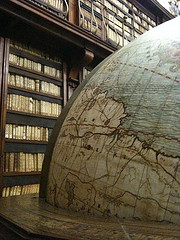Once Upon A Time – And Everything Changed
 A day at the end of June, 8:36 a.m. – A high-speed train, G7381 with the name “Harmony”, takes me from Shanghai to Hangzhou.
A day at the end of June, 8:36 a.m. – A high-speed train, G7381 with the name “Harmony”, takes me from Shanghai to Hangzhou.
Apparently it was Marco Polo who said 下来有苏杭 上 有天堂 and indeed, it seems to be heaven on earth. I am traveling there on the ground, at the earthly speed of nearly 350 km.
Outside the built-up areas, the fields, the streets and the huge green-house areas – passing by like images from a dream, appearing and disappearing like the clouds one may see looking out of the window of an aircraft … 350, 300 …… 250, 200, 180, 140, 90, 80, 55, 30, 20, 10, 9, 7, 4 … the train stops.
It has been a while since I lived in a town in Germany – mind, not a village, not a city: a town. It has approximately 25,000 inhabitants and occasionally we would go to a city nearby: a place with probably 100,000 inhabitants. Well, we thought of it as a city. At least it had an opera house and a theatre and I had been privileged enough to occasionally be able to go there – after finding the required transportation and money. It’s among my favorite childhood memories, one of the things I thoroughly enjoyed during my childhood. Perhaps I enjoyed it so much because it made a little dent in an environment that seemed, and actually was, smooth. Any attempt to escape only lead to slippery ground that, although it required permanent movement, did not allow progress.
A little later this tiny, seamless world had burst. For me, in the same way as for the many others who turned to the streets at the end of the 1960s – against the aggressors in Vietnam, against German media-giant Springer who had been one of the gofers of the aggressors in the far-east; against the Gaullist system in France. But we also turned to the streets in favour of matters – of Bloch’s notion of the Principle of Hope and Marcuse’s realist utopia: You should sleep for nine hours without dreams. Then you will have the whole day for dreams.
Read more: Once Upon A Time-And-Everything-Changed